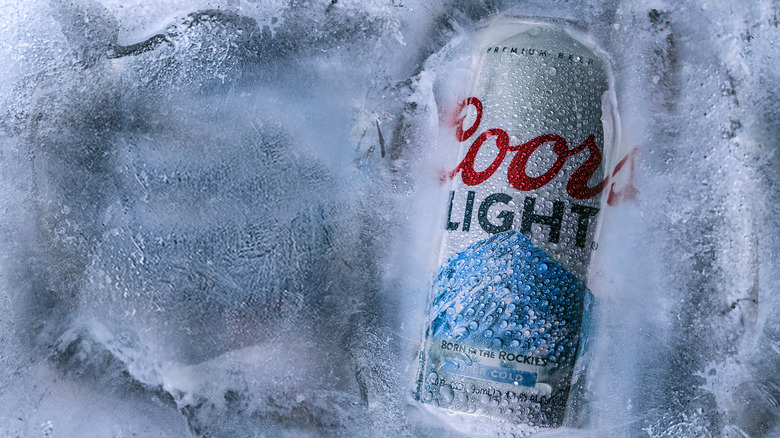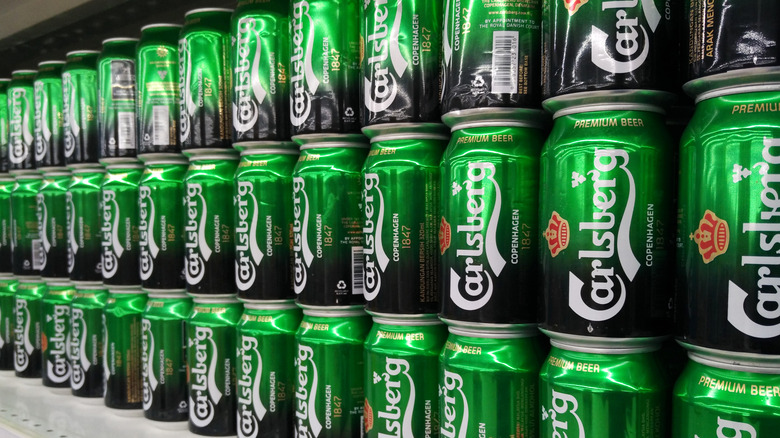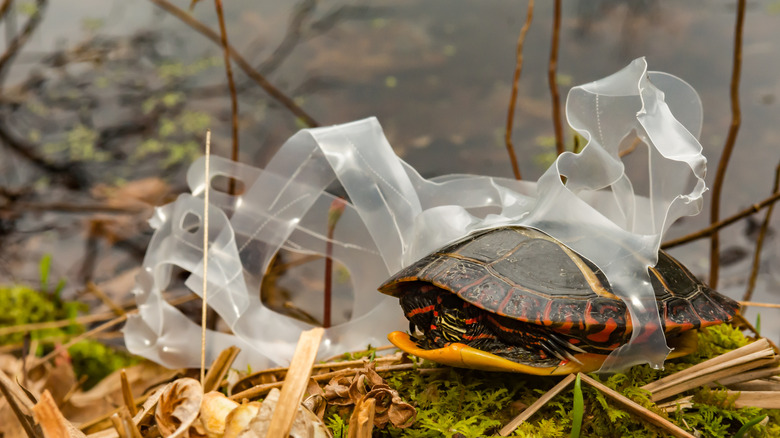Molson Coors Just Made A Big Commitment To Sustainablility
You've likely seen some of the disturbing images that have circulated on social media involving our use of plastic and its impact on nature, including that of turtles and birds getting tangled up in the plastic rings that make it easy to pick up and carry canned beverages. This waste is why Molson Coors has said it will be investing $85 million to make the change from plastic to sustainable cardboard wrap carriers for its beverages, beginning this year with the Coors Light brand.
In a company release, Molson Coors said the money was going into upgrading its packaging machinery which will allow all its products across North America to be sold in new cardboard wraps by 2025. The move is meant to keep the company from using 1.7 million pounds of plastic annually.
The company's CEO, Gavin Hattersley, said: "Our business, and Coors in particular, has a long history of using packaging innovation to protect our environment, and today we are building on that rich legacy. Just as Coors led the way by pioneering the recyclable aluminum can, Coors Light will lead the way by moving out of single-use plastic rings in North America."
Molson Coors is the latest brewery to make a packaging switch
Molson Coors isn't the first brewery to make the packaging change in an attempt to prevent more plastic from entering the ecosystem. Two weeks ago, Carlsberg announced it would glue its aluminum cans together instead of using plastic rings, in a move that is expected cut the amount of plastic the company uses by 75%, according to The Marketing Folks. It took the company three years to develop the adhesive, which it says is strong enough to keep the cans together, but flimsy enough to break apart when the cans are meant to be consumed. The Marketing Folks, which announced the change, said the innovation was well received by the World Wildlife Fund (WWF) which said the invention is "a big step to tackle to [sic] growing amount of plastic pollution threatening our environment."
MarketWatch reports that in Europe, Diageo removed both the rings and plastic shrink wrap around its Guinness, Harp, and Smithwicks beverages in 2021. And in 2016, Florida craft brewery Saltwater Brewery, which makes Screamin' Reels IPA, began packaging its beers with a compostable six pack ring. Made with spent wheat and barley, the rings are meant to break down quickly when thrown away, and are edible if they somehow make it into oceans.
The statistics surrounding plastic waste are grim
While plastic rings have been around since the 1960s, it wasn't until 1994 that the Environmental Protection Agency was able to mandate that all rings be produced so they are degradable. This means that they decompose in sunlight, but the packaging is said to take as much as three to four months to break down in "cloudy, winter-like conditions," per National Geographic. When they do break down, these rings become microplastics that can be ingested by animals.
The switch was made after the Associated Press reported that an estimated one million birds and 100,000 sea mammals are killed every year by these six-pack rings in 1987. In 1988, a beach clean-up in Oregon yielded 1,500 six-pack rings in just a few hours.
The numbers around plastic waste remain grim — the International Union for Conservation of Nature (IUCN) reports a minimum 14 million tons of plastic end up in the earth's oceans every year, so it's safe to say that any effort made by beverage companies to cut this down is a step in the right direction.


